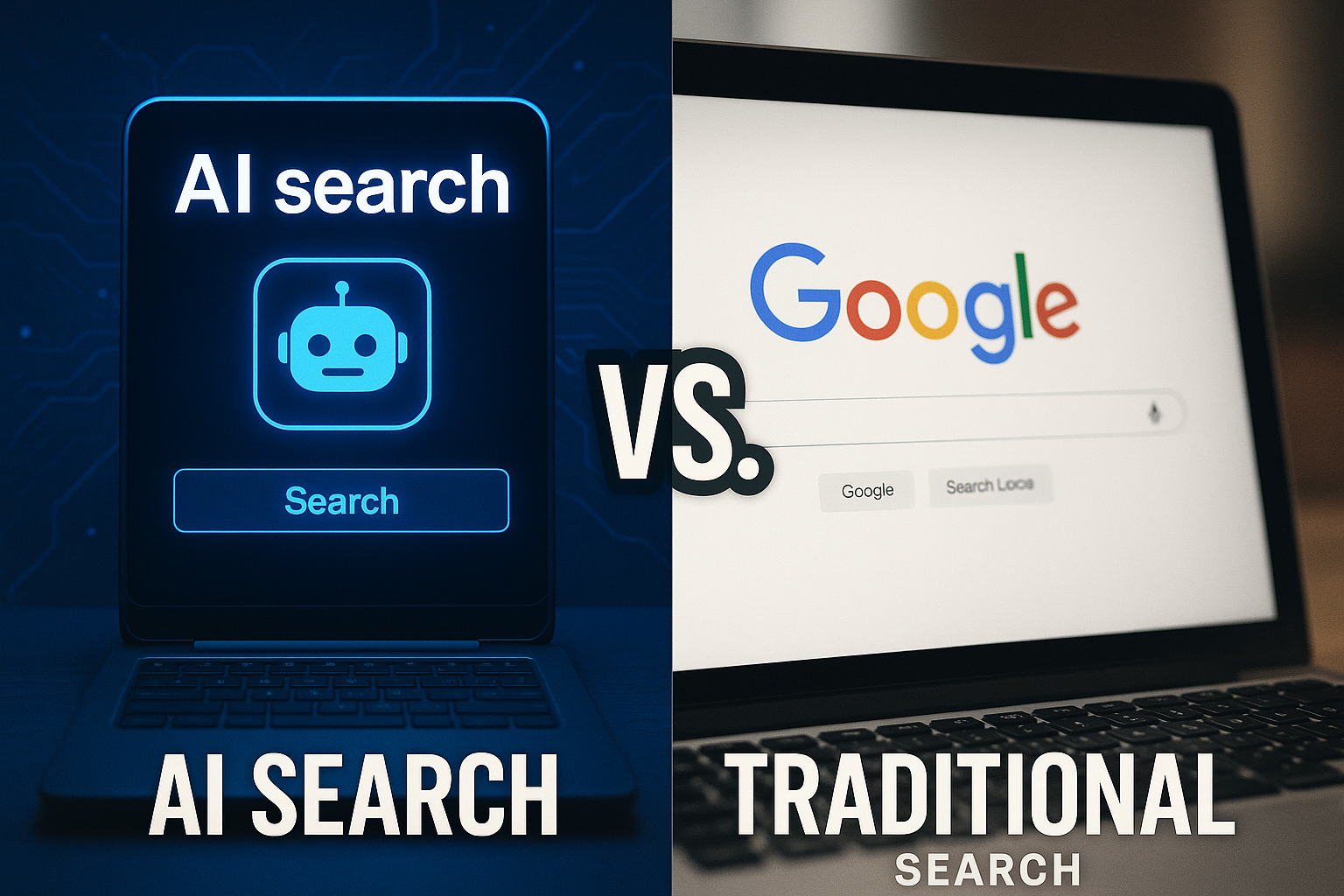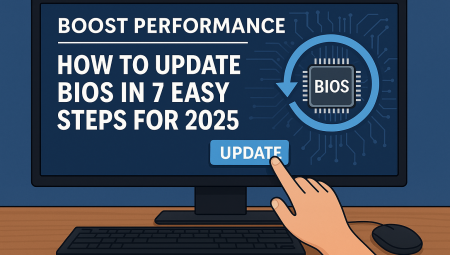The Search Revolution Has Begun
For over two decades, Google has been the undisputed gateway to the internet. But in 2025, the rise of AI-powered search tools—like ChatGPT, Perplexity AI, Claude, and You.com—is reshaping how people find and consume information. These tools don’t just deliver links—they deliver answers.
This article dives deep into the AI vs traditional search battle, exploring how user behavior, SEO strategies, and content creation are evolving—and whether Google can keep its dominant position in the age of AI.
What Is AI Search?
Understanding AI-Powered Search Engines
AI search tools use large language models (LLMs) to process natural language queries and generate conversational, context-aware responses. Rather than serving a list of links like Google, they synthesize information from multiple sources in real time.
Top AI Search Engines in 2025
- ChatGPT with web browsing (OpenAI)
- Perplexity AI — real-time, citation-based answers
- Claude by Anthropic — ethical and safety-focused
- You.com — customizable and privacy-conscious search
How Does AI Search Differ from Google Search?
AI search tools deliver direct, conversational answers instead of a ranked list of links. They use natural language processing to summarize, explain, or compare data in context. Google relies on indexing, ranking, and linking to external sites for its results.
Why AI Search Is Gaining Traction in 2025
1. Instant, Contextual Answers
Users no longer need to click through 5–10 pages to find what they want. AI search engines offer summarized insights in one place.
2. Conversational Experience
People can ask follow-up questions naturally, making the interaction feel more human and intuitive.
3. Citation Transparency
Tools like Perplexity link directly to sources, rebuilding trust in a misinformation-heavy web.
4. Multimodal Search
AI can process images, code, documents, and videos—not just text-based queries.
Is Google Responding to the Threat?
Search Generative Experience (SGE)
Google launched SGE to integrate generative AI directly into search. It combines AI snapshots with traditional links and shopping cards.
Bard + Gemini Integration
Google’s own LLMs are now embedded into the search engine and productivity tools to keep pace with AI competitors.
YouTube and Google Maps AI Enhancements
Google is using AI to generate video chapters, personalized recommendations, and context-rich location suggestions.
Challenges Facing Traditional Search Engines
1. Declining Click-Through Rates
AI snippets and zero-click answers mean fewer users are actually visiting websites.
2. SEO Uncertainty
With answers now being generated rather than linked, content creators are struggling to understand how to rank.
3. User Fatigue with Ads
Google’s increasing number of sponsored results and ads is pushing users toward ad-free AI tools.
4. Trust in Algorithm Transparency
Users are demanding more clarity around ranking logic—AI tools with cited sources are more appealing.
Who Wins in AI vs Traditional Search?
The Hybrid Future
It’s unlikely AI will fully replace traditional search. Instead, the future lies in hybrid models that combine:
- AI snapshots for instant info
- Traditional SERPs for discovery and depth
- User-controlled toggles between answer vs source
User Preference Will Decide
Casual users may favor AI chats for quick answers, while researchers and professionals may still prefer the depth of Google results.
Pro Tips: Navigating the Search Landscape in 2025
- Diversify your SEO strategy to include AI answer optimization (FAQ format, conversational tone).
- Use structured data and schema markup to increase AI visibility.
- Create E-E-A-T content to stay relevant in both traditional and AI search.
- Monitor AI citations — make sure your brand appears in answer references.
- Explore AI search plugins like those in ChatGPT Pro or You.com extensions.
- Experiment across platforms — test your queries in both AI and Google.
FAQs: Frequently Asked Questions
Will AI search engines replace Google?
Not completely. While AI search offers powerful advantages, Google’s infrastructure, products, and trust make it resilient. A blended future is more likely.
How do I optimize content for AI search?
Focus on question-based headlines, semantic SEO, authoritative content, and structured data. Make your content easily digestible and useful.
Which AI search tool is best in 2025?
It depends. ChatGPT is best for natural conversation, Perplexity excels at sourcing, and You.com offers customization and privacy.
Is traditional SEO still relevant?
Yes—but it’s evolving. SEO now includes optimizing for how AI interprets and cites content, not just how Google ranks it.
Can AI search engines be trusted?
AI tools are improving in accuracy, especially those that cite sources. Still, always cross-check important information with verified references.
What’s Your Go-To Search Tool in 2025?
Are you still using Google, or have you switched to ChatGPT or Perplexity? Let us know your experience and which platform gives you the best answers in the comments below!
Coming Soon: “AI-Powered SEO: How to Rank in a Post-Google World”



